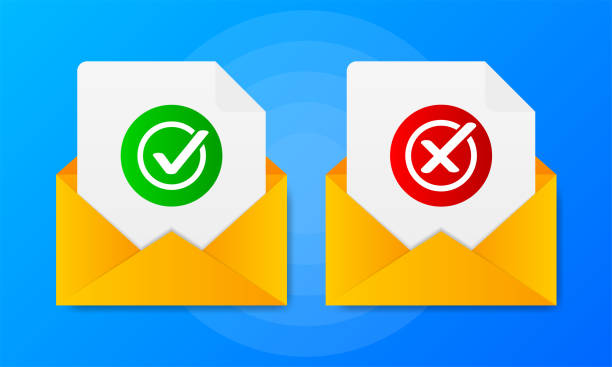You probably must have received a “rejection letter” before. Many candidates have already grown tired of receiving such emails.
Now, “why do resumes get rejected” so fast?
The competition in today’s date is high. Companies have organized their systems and ways to handle people. The growth of ATS development has already led to an increase in high chances of rejection.
In this article, we will go through “The Top 10 reasons for resume rejections” that candidates face in their daily life so that you don’t fall into these pitfalls. Let’s dive right in:
Table Of Contents:
- 1. Lack of Important Keywords and Specifications
- 2. Overusing the same resume (old and scribbled)
- 3. Typos and Grammatical Errors
- 4. Missing Qualifications
- 5. Employment Gaps
- 6. No Application Materials
- 7. Layout of your resume
- 8. Not fulfilling Requirements
- 9. You’re Overqualified
- 10. Informal Approach
1. Lack of Important Keywords and Specifications
Why is this important?
When you apply for a job, your resume would probably in 95% of the cases, won’t go to a human being, instead, it would go straight to an Applicant Tracking System(ATS).
Nowadays, Applicant Tracking System has a huge demand because HRs who have to check 100s or even 1000s of resumes aren’t going to check one by one every single resume every day.
Instead, they use an ATS. And notably, 99% of the Fortune 500 are already using it!
Now, when the ATS goes through your resume, it searches for specific keywords and specifications that HR would be demanding. And if your resume doesn’t check out all the checkboxes at this stage, you will always remain in the database, unseen.
So, how to add these super important keywords in a resume?
It’s super simple, Just look at the job description and take notes of the specific keywords and phrases that appear the most. After all, you could always add keywords to your list that you think are most important.
2. Overusing the same resume (old and scribbled)
To some people, it doesn’t make sense to keep changing their resume for every vacancy they are applying for, Even if it is the same vacancy with the same experience requirements. And unfortunately, this is one of the biggest mistakes that most people do.
Personalizing your resume for the Employer demonstrates if you are fit for the company and work or not. Make sure that you highlight your work experience and skills that are closely related to the requirements mentioned in the job description.
For example, Different companies work on different projects with different requirements. And when you’re applying for more than one company, even if you know all of the skills, sometimes you don’t have the space to add the whole of it. Or sometimes if you luckily get a 100% match, then also the company may be putting on more emphasis on only one particular skill, part of a skill, or degree…
Again, because HRs don’t have time to check every single job application, personalizing your resume for every job posting is a crucial thing. When you follow this strategy, you are able to gain the attention of the HRs at first glance.
So make sure that your resume is specialized only for the position you are applying for, and move on to the next problem-
3. Typos and Grammatical Errors
Sometimes, we unintentionally write grammatically wrong sentences. In some cases, these can affect the HRs in a negative approach towards you.
In Leadership and sales roles, wrong grammar can keep getting you rejected by all types of big companies.
For example, you are currently working as a senior software engineer somewhere and you want to apply for a team lead position. Here, HR would probably expect already soft skills like good communication skills, fluent English, and leadership from you and especially from a person who is new to this type of job.
Thus, trust-building and a formal and respectable approach are essential for making the HR and the Employer trust that you are a good fit for the position.
To solve this problem, you could always use a resume writing service that is the best for enhanced results or use a freemium tool like Grammarly as an alternative.
4. Missing Qualifications
Let’s understand this problem with an example –
Suppose, you want to apply for a team lead in a company XYZ and the minimum requirements or qualifications are –
- Minimum Requirements –
- Bachelor’s degree in Information Technology
- 10+ years of experience in the technological field
- Good Communication Skills
The best way to show the Employer that you are a fit for the position is to show evidence of your skills and qualifications.
The education section can’t be tailored here of course, but you could always prove that your English is good by pointing out some important courses or awards that you have earned before.
In most cases, there is a Minimum Requirements / Qualifications Section in the job description by HR. But sometimes when it is not present, you would have to read the JD carefully. This helps you understand what professional background the Employers would generally prefer.
5. Employment Gaps
Gaps in your working section of the resume indicate that you weren’t working for a time period. This can make employers doubt your efficiency and truthfulness.
Answering the interviewer about your employment gaps is sometimes hard to explain. So if you have a logical explanation then you should acknowledge it in your cover letter only.
Pro tip: Always prefer Gmail accounts instead of outdated email services like Hotmail and yahoo. Hr managers might think you are outdated when you have employment gaps. – Source: How to write a resume
6. No Application Materials
Submitting a cover letter is not always necessary. But it’s something that HR would like for sure. A cover letter acts as a bridge between you and the employer.
More than 85% of recruiters are demanding it and it’s also a must-have in big companies.
In a cover letter, you can submit reasons for employment gaps in your career history, briefly introduce yourself, and tell why you are a perfect fit for the company. Alongside, You could also list some hard-coded achievements that you have achieved.
Extra Benefits: A good cover letter always helps you grab HR’s attention on the first try. He/she digs deeper into your CV or Resume spiking the chances of you getting interviewed
7. Layout of your resume
In some cases, a troublesome and untidy resume layout in worst cases can get you the answer to the why resumes get rejected by HR.
Why so?
The layout of your resume affects how HR views your qualifications and work experience.
For example, if your indentation, font size, and heading distribution is challenging for the HR to understand, in some cases, if it’s too much for the HRs then they will not think twice to straightaway reject you.
That’s why you should always try to use a simple layout that demonstrates you best as a candidate.
But if you are a person related to graphics design then HRs will surely test your creativity in the first stage itself. Some factors like- Color combination, Font-size, tidiness, and indentation are those that matter here. So, if you come up from this situation then there’s a 90% chance that you will crack the “Creativity Remarks” Section for sure.
8. Not fulfilling Requirements
Many times, HRs may provide specific instructions for applying for a job. Candidates who don’t fulfill these instructions, may not be able to apply for the position.
For example, if HR instructs candidates to send a cover letter and a portfolio that showcases their previous accomplishments. Fulfilling these specifications can show HR that you’re ready to give your time and effort for the position.
And moreover, this can also increase your trustworthiness in the sight of HR. So there’s 2x benefit that you can grab just in the first stage of approval.
9. You’re Overqualified
Job Seekers grow tired of reading the rejection letter when it says “You’re overqualified”. Because employers sometimes don’t want somebody who doesn’t want to learn anything or progress and take challenges.
If you’ve some legitimate reason then you can surely address it in the cover letter. Else it’s always advisable that you take positions that can challenge you.
10. Informal Approach
Using too much of personal pronouns, and emojis, or when you get to talking about past incidents on your resume/cover letter can get you passed over immediately by HR.
HR who are already frustrated won’t even think a second to get to talking. Instead, they will regard you as a time passer and just pass over.
Even showcasing your Hobbies is a terrible thing to do on your resume. It’s regarded as bad practice by most professional writers as it takes up valuable space on your resume where you could brief yourself better. For them, even a word matters when you want 100% selection.
So a formal and respectable approach is a must in all cases.
Pro Tip: Always use a formal email id because a recent survey has already conveyed that a formal email tends to work better than informal email ids. Report: 76% of resumes are discarded because of only not using a formal and professional email id.
Learn More…

How To Write A Resume: Beginner’s Guide (2023)
Are you struggling to get shortlisted for companies and not able to get your dream job? Millions of people get rejected only because they don’t have a convincing resume. Your resume is the most important tool for the first stage you will be stepping into after a recruiter or HR reaches you. In fact, People…

Good Communication Skills – Critical for Success
To have great communication skills is an asset, a really great skill to possess. Whether it is a sales role, admin role, or technical role, all employers look for someone with good communication skills when they are looking to hire. In fact when a company is looking to promote someone to a lead or manager role,…

Expert Tips on How to Make a Resume
How many times you have seen a job advertisement that was just right for you, applied for it, but never heard back from the company? You then start asking these questions yourself … Did they see my application? Is the vacancy open? Why didn’t I get any call? I have been in recruitment…


